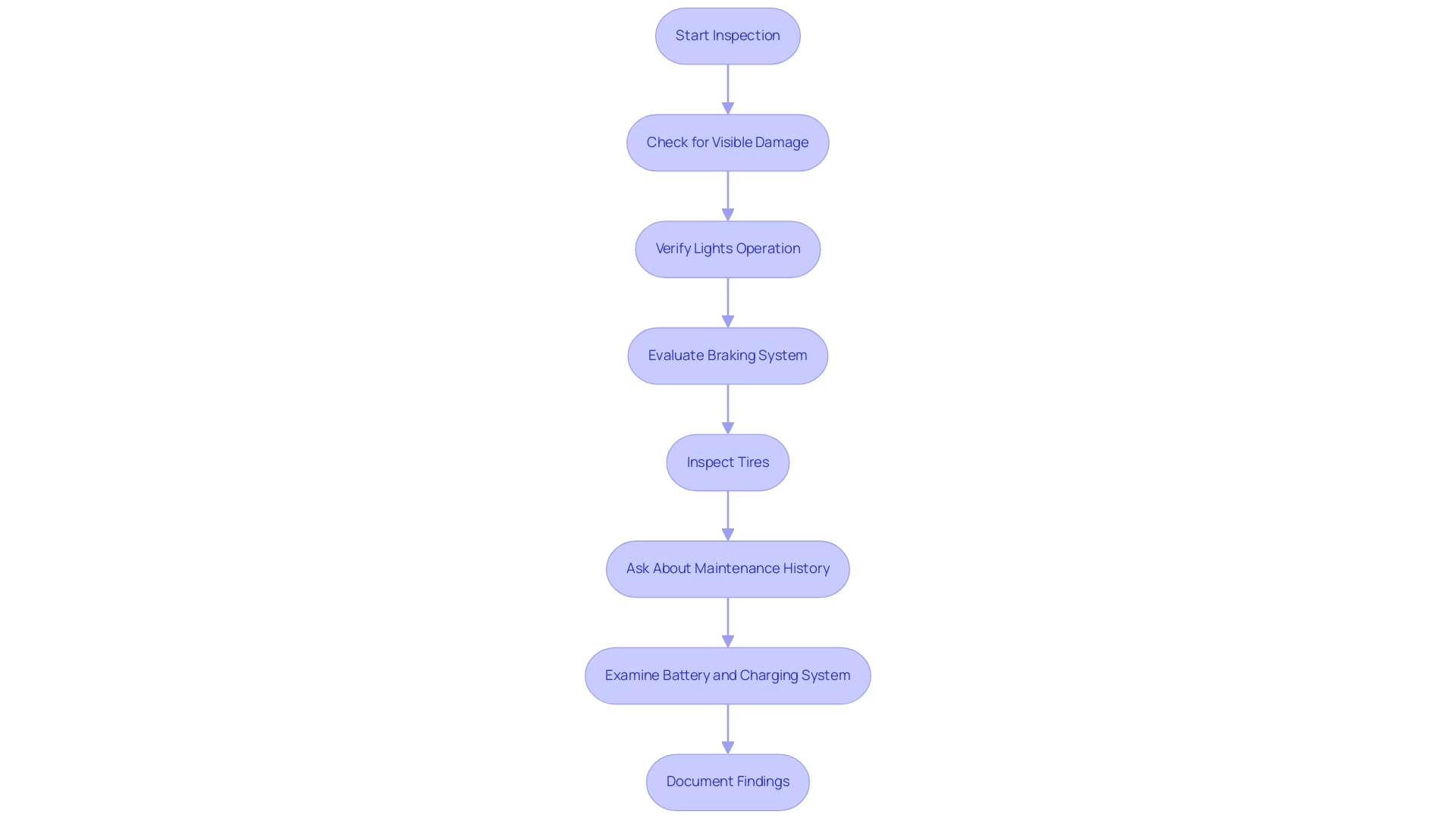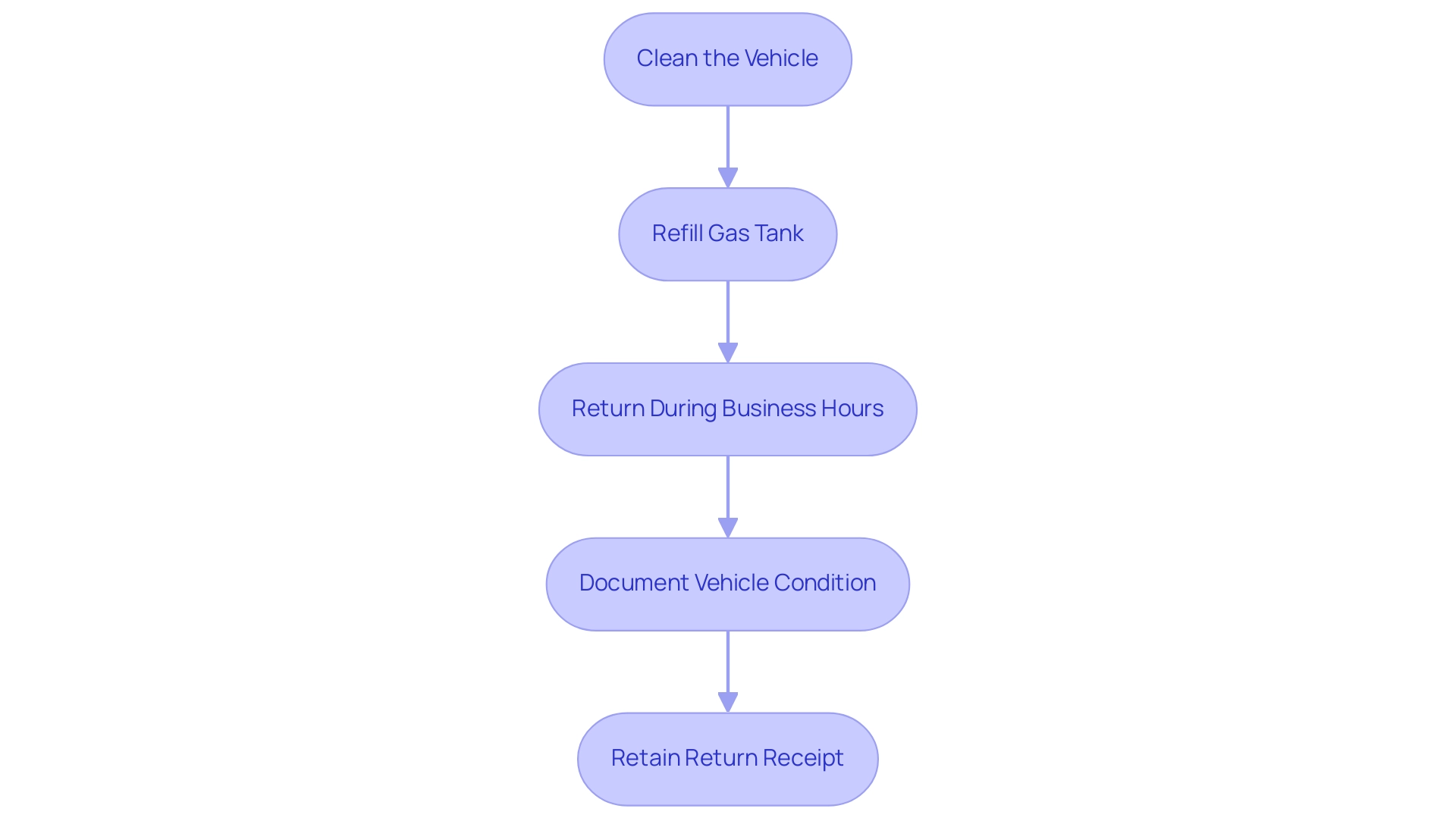Introduction
Navigating the world of trailer rentals can often feel overwhelming, especially for those embarking on construction projects or moving tasks. With a plethora of options available in places like Irving, TX, understanding how to identify reliable rental services is crucial. From knowing the necessary requirements for renting a trailer to conducting thorough inspections before finalizing the agreement, each step plays a vital role in ensuring a seamless experience.
As the demand for trailer rentals continues to grow, fueled by emerging trends in the construction sector, it becomes increasingly important for renters to equip themselves with the knowledge needed to make informed decisions.
This article will guide readers through the essential aspects of trailer rentals, offering insights that can help avoid common pitfalls and enhance overall satisfaction with the rental process.
Identifying Local Trailer Rental Options
To effectively locate local trailer leasing options in Irving, TX, start by searching online with specific keywords like '16 trailer rental near me' or '18-foot trailer choices.' Utilizing platforms such as Google Maps can provide a comprehensive overview of nearby leasing locations, allowing you to read customer reviews and assess the reliability of these services. Reputable companies, including U-Haul and Budget Truck, along with local equipment leasing stores, are excellent starting points.
Additionally, personal referrals can be invaluable; reaching out to friends or family for recommendations often leads to trustworthy options. As you compile a list of potential leasing services, document their contact information and operating hours for any further inquiries. It's noteworthy that in 2023, a significant share of renters in the U.S. are facing financial challenges, which underscores the importance of understanding housing affordability metrics.
The demand for trailer leases is projected to rise, driven by new trends in the construction sector. By remaining aware of these market dynamics, construction project managers can navigate challenges effectively and choose service providers that meet their project needs. Furthermore, consider the availability of additional equipment such as boom lifts and excavators, which may also be essential for your projects.
For inquiries, you can reach out to local leasing services at (214) 951-7800, and check their operational hours to ensure timely service.
Understanding Rental Requirements for a 16-Foot Trailer
When considering a 16 trailer rental near me, it is crucial to be aware of the necessary requirements to ensure a smooth experience. Typically, you will need to present a valid driver's license along with a credit or debit card to facilitate the transaction. Numerous leasing firms also require proof of insurance; therefore, it’s wise to examine your existing policy or think about selecting insurance provided by the business to cover any possible liabilities.
In addition, you should be prepared to sign a lease agreement detailing the terms of the arrangement, which includes the duration, mileage limits, and any extra fees associated with late returns or damages.
It's important to note that in Wyoming, a Class B license is required for vehicles over 26,000 lb towing under 10,000 lb, while a Class A license is necessary for towing over 10,000 lb. This information is particularly relevant for construction project managers who need to comply with state regulations.
Comprehending the organization’s fuel policy is crucial, along with examining the vehicle’s condition before finishing the leasing process to prevent unforeseen fees afterwards. Furthermore, statistics suggest that the vehicle leasing market is anticipated to expand, shaped by strategic advancements and competitive assessments in the sector, which may offer opportunities or challenges for leasing choices. As Tom Sperner aptly notes,
The reader should always consult professional advice before making any decision or taking any action.
This insight is especially pertinent when managing the complexities of vehicle leases.
Inspecting the Trailer Before Rental
Before finalizing your rental, it is essential to conduct a meticulous inspection to ensure both safety and functionality. Begin by examining the vehicle for any visible damage, which may include:
- Dents
- Scratches
- Rust
These issues could compromise its integrity. Verify that all lights, including side marker and clearance lamps, are operational, particularly since vehicles 80 inches or wider are mandated to have these features in compliance with regulations established after 1968.
Furthermore, evaluate the braking system for responsiveness and examine the tires for sufficient tread depth and correct inflation to avert performance problems. It's also important to ask about the vehicle's maintenance history from the leasing agent; understanding any recent repairs can provide insights into potential future issues. Notably, battery and charging system problems are prevalent causes of vehicle breakdowns, with common findings such as:
- Worn belts
- Corroded terminals
Therefore, ensure that these components are also inspected. Document any pre-existing damage meticulously with photographs or detailed notes, and ensure that the rental agreement accurately reflects these conditions. This documentation is crucial for avoiding disputes upon returning the vehicle.
As Larry Rambeaux, a sales application engineer for Purkeys, emphasizes, "We have seen corrosion so bad that it took using two 2x4s prying on the back of the cab to get the plug to come out." This emphasizes the seriousness of corrosion problems and the necessity of thorough inspections. Additionally, considering that slide-outs are among the most common RV breakdowns, it underscores the importance of vigilance during the inspection process to safeguard your project.
Furthermore, RV inspections offer warranty holders advantages such as identifying issues that can be documented and addressed, thereby maximizing warranty coverage and preserving the resale value of the vehicle.

Understanding the Rental Agreement
Before signing a vehicle leasing agreement, it’s essential to perform a thorough examination to prevent possible complications. Key components to scrutinize include:
- Lease duration
- Mileage limits
- Associated fees for late returns or damages
Understanding the fuel policy is also essential—determine whether the vehicle must be returned with a full tank or as is.
Additionally, be aware of any restrictions on towing locations and if extra insurance is required. For instance, companies like COOP often require a refundable deposit when leasing trailers, which can impact your budget planning. If any terms seem unclear, don’t hesitate to seek clarification from the leasing agent to ensure you’re fully informed.
This diligence helps prevent common issues that may arise from misunderstandings in the lease agreement. As emphasized in the case study on TIP Leasing Options, flexible leasing can alleviate financial pressures for fleet managers by adjusting to evolving needs, underscoring the significance of comprehending leasing contracts in 2024 and beyond. As noted by Addie Turner, 'Discover key steps to rent trailers—from selecting the appropriate size to grasping the terms—is essential for a smooth leasing experience.
Returning the Trailer
Returning a vehicle involves several critical steps to avoid unexpected fees and ensure a hassle-free experience. Begin by thoroughly cleaning the vehicle and eliminating any debris, as numerous leasing businesses impose cleaning charges that can be significant. For example, average cleaning charges for mobile units can differ greatly, with New Jersey having the highest average cleaning expense at $82.38, while New Mexico holds the lowest at $38.69.
It's also essential to refill the gas tank in accordance with the agreement's fuel policy, which is a common requirement across most companies.
When returning the vehicle, do so during business hours to facilitate a smooth check-in process. This enables the leasing agent to examine the vehicle for any possible damage, reducing conflicts upon return. Retain a copy of your return receipt as evidence of the transaction, which can be essential if any problems occur later.
If you observe any issues or damage when returning the trailer, record these problems promptly and convey them to the service provider to resolve any discrepancies.
According to Michelle Payne, a CPA with over five years of experience working with non-profit organizations, "Proactive communication can significantly reduce misunderstandings and enhance the overall leasing experience." It’s advisable to familiarize yourself with the specific return policies of your leasing company, as these can differ widely. By following these best practices and considering Turno's role in streamlining vacation rental operations, you can navigate the trailer return process efficiently and with confidence, mitigating common issues such as unexpected fees or disputes.

Conclusion
Navigating the trailer rental process requires careful attention to detail and an understanding of key components that can significantly impact the overall experience. Identifying reliable rental options in Irving, TX, begins with thorough research, utilizing online resources and personal referrals. Understanding the necessary requirements for renting a trailer, such as documentation and insurance, ensures compliance and a smooth transaction.
Conducting a meticulous inspection of the trailer before rental is paramount. This step helps identify any pre-existing damage and ensures the trailer is safe and functional for the intended tasks. Furthermore, a comprehensive understanding of the rental agreement, including terms related to mileage, fees, and fuel policies, is essential for avoiding complications down the line.
Returning the trailer also demands attention to detail, from cleaning and refueling to documenting any issues that may arise during the return process. By adhering to these guidelines, renters can mitigate common challenges, enhance their rental experience, and ensure that their projects proceed without unnecessary setbacks.
In conclusion, being informed and proactive throughout the trailer rental process not only fosters a smoother experience but also empowers renters to make decisions that align with their project needs. By following these best practices, individuals can navigate the complexities of trailer rentals with confidence, ultimately achieving their goals efficiently and effectively.
Frequently Asked Questions
How can I find local trailer leasing options in Irving, TX?
Start by searching online with specific keywords like '16 trailer rental near me' or '18-foot trailer choices.' Utilizing platforms such as Google Maps can help you find nearby leasing locations, read customer reviews, and assess the reliability of these services.
What are some reputable companies for trailer leasing?
Reputable companies include U-Haul and Budget Truck, along with local equipment leasing stores.
How can personal referrals assist in finding trailer leasing options?
Reaching out to friends or family for recommendations can lead to trustworthy leasing options.
What information should I document when compiling a list of potential leasing services?
Document their contact information and operating hours for any further inquiries.
What challenges are renters facing in the U.S. in 2023?
A significant share of renters are facing financial challenges, highlighting the importance of understanding housing affordability metrics.
What trends are influencing the demand for trailer leases?
The demand for trailer leases is projected to rise due to new trends in the construction sector.
What additional equipment might be essential for construction projects?
Consider the availability of additional equipment such as boom lifts and excavators.
What requirements are typically needed for renting a trailer?
You will need to present a valid driver's license, a credit or debit card, and possibly proof of insurance.
What should I know about the lease agreement when renting a trailer?
Be prepared to sign a lease agreement that details the terms, including duration, mileage limits, and any extra fees for late returns or damages.
What are the licensing requirements for towing in Wyoming?
A Class B license is required for vehicles over 26,000 lb towing under 10,000 lb, while a Class A license is necessary for towing over 10,000 lb.
Why is it important to understand the leasing company's fuel policy?
Understanding the fuel policy and examining the vehicle's condition before finalizing the lease can prevent unforeseen fees later.
What should I do before making decisions about vehicle leases?
It is advisable to consult professional advice before making any decision or taking any action, especially when managing the complexities of vehicle leases.




